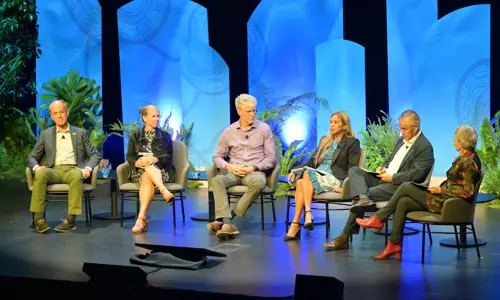How to Appoint a Professional Conference Organiser
Whether you're part of a host organisation or a local organising committee planning a conference in Sydney, partnering with a Professional Conference Organiser (PCO) can be a game-changer.
A PCO brings specialised knowledge in event strategy, logistics, and execution, ensuring your event runs smoothly from start to finish.
These expert teams collaborate closely with event owners to align with objectives, offer strategic advice, and manage every detail, from venue coordination to delegate experience. For international associations and corporations looking to host impactful events in Australia, engaging a PCO is a smart, stress-free solution.

Confirm Roles and Responsibilities
Different conferences have various governance and project management models, so it is important to confirm at the outset who will be responsible for each element of delivery. As a first step (and as applicable) work with the international association or organisation that has ongoing custodianship of the conference to understand:
• what they require from you
• support and services they provide to you
• any policies, processes and decision-making powers that may affect how you appoint and partner with a PCO.
Identify the Event Format and Scale
In-person meetings remain the most common format for conferences. However, technological advances and programming innovations have created new opportunities to engage delegates.
Consider how many people you want to engage, and whether you want your event to be delivered for physical attendees only, or via a hybrid format that also includes interactive virtual audiences.

Identify Required Services
You can now assess gaps in resources and technical support to identify the services you need from a PCO. This may range from preliminary research on venues and suppliers, budgets and overall project planning, through to marketing and promotion, accommodation, registration, management, programming, and event delivery.
Create a Request for Proposals
Based on your assessment and data from previous iterations of the conference, create a Request for Proposals (RFP) that includes:
• general information on the conference and its history, such as event frequency, delegate numbers, and links to previous programs
• information specific to the event you want to host, such as proposed location, duration, schedule, format, venue facilities, registration fees, exhibition, accommodation and technical requirements, and expected roles and responsibilities
• clear instructions for the tender process (for example, you may want to stipulate the format in which you expect to receive proposals and fees, so that you can compare them like-for-like, when the time comes.)

Shortlist Potential PCOs
At this stage, identify PCOs that seem most suited to your needs and compile a contact list. You may want to consider PCOs that have conference management as their core business; proven experience with conferences of a similar type, size, and format; a good reputation; and financial and organisational transparency.
You can also find information and contact details for PCOs that operate in Sydney on our website.
Distribute your Request for Proposals to PCOs
Time the distribution of your request to allow PCOs ample opportunity to review your requirements, gather relevant information, estimate fees, and follow up with any questions (at least three weeks, if possible).
Evaluate Proposals and Check References
Once the deadline has passed, evaluate and compare the proposals. If you provided a standard format for responses and fees in your RFP, this step should be relatively easy.
However, if one PCO seems much cheaper than most or has not made clear what services are included in the quoted fees, do not hesitate to contact them to seek clarification.
Once you have a list of prospective PCOs, you can seek references from current and past clients or partner companies, like venues and hotels.

Interview Prospective PCOs
Once you have identified prospective PCOs, it is standard practice to invite them to make a short presentation to relevant decision makers (20 mins) followed by Q&A (40 mins). This can be done in-person or virtually, but it should be the same for all candidates.
This is your chance to discuss the PCOs’:
- experience with similar events
- financial and legal position
- technological expertise
- staff structures and key contacts
- governance, finance and risk management frameworks
- codes of conduct; sub-contracting arrangements
- environmental, corporate and social responsibility policies
- reporting relationships
- working practices and processes.
Select your PCO
You should now be in a strong position to decide which PCO will be best suited to work with your team and deliver your conference!
Give them a call, share the good news, and agree next steps.
Put in place a written contract that clearly outlines the services to be provided, as well as roles and responsibilities. Many PCOs will have standard agreements that they can adapt for your purposes, but it is worth engaging a legal representative to review paperwork prior to signing, to ensure that your interests are protected.
Once you have both signed and confirmed the agreement, as a courtesy, inform the remaining candidates that they were unsuccessful.


